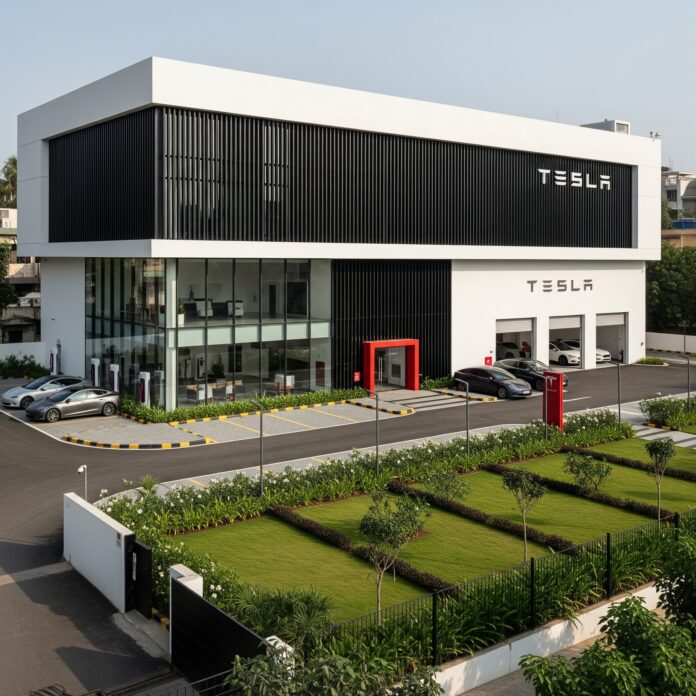MUMBAI, India – June 4, 2025 – Electric vehicle (EV) titan Tesla is solidifying its operational presence in India, recently securing a significant 24,565 sq ft warehouse space in Mumbai’s Kurla. This strategic acquisition, intended to function primarily as a vehicle service center, marks Tesla’s fourth office in the country and underscores a growing commitment to the Indian market, despite recent statements from the Indian government suggesting the company is not yet keen on local manufacturing.
The five-year lease agreement for the facility in Lodha Industrial and Logistics Park, developed by Macrotech Developers, commenced on April 20, 2025, with rent payments of ₹37.53 lakh per month set to begin from June 1 after an initial rent-free period. The lease includes an annual 5% escalation, alongside Common Area Maintenance (CAM) charges of ₹10 per sq ft, also subject to annual increases. The total rent outlay for the five-year term is estimated to exceed ₹24 crore.
This latest move comes on the heels of Tesla’s record-setting showroom lease in Mumbai’s Bandra Kurla Complex (BKC), which reportedly commanded rentals of ₹881 per sq ft. Beyond Mumbai, Tesla maintains an engineering facility in Pune and a registered office in Bengaluru, signaling a multi-city rollout strategy.
However, the expansion of its service infrastructure arrives amidst a backdrop of mixed signals regarding Tesla’s broader manufacturing ambitions in India. Just days prior, on June 2, Union Heavy Industries Minister HD Kumaraswamy stated that Tesla was primarily interested in opening showrooms and was not expected to set up a production unit in India in the immediate future. “Tesla… they are only to start showrooms. They are not interested in manufacturing in India,” Minister Kumaraswamy reportedly told the media.
This ministerial clarification runs counter to earlier speculation, particularly following Prime Minister Narendra Modi’s meeting with Tesla CEO Elon Musk in the U.S., which had fueled hopes of a significant manufacturing investment. The Indian government recently finalized its new EV policy, designed to attract global automakers with substantial incentives, including reduced import duties (15% from the current 70-100%) for companies committing to invest at least $500 million (approx. ₹4,150 crore) in local manufacturing and starting production within three years.
While Tesla had previously cited India’s high import duties as a major barrier to entry, its current stance, as conveyed by the minister, suggests a focus on importing fully built units rather than establishing local production lines, at least for now. This contrasts with other global automakers like Mercedes-Benz, Hyundai, Kia, and the Volkswagen-Skoda alliance, who have reportedly shown interest in leveraging the new policy for local manufacturing.
Industry experts note that India’s EV market, though growing rapidly (from 5,000 units in 2020 to over 113,000 in 2024 for passenger vehicles), is still nascent, with EVs accounting for less than 3% of total car sales. The market remains price-sensitive, and Tesla’s premium models would face significant challenges without local assembly benefits. The lack of a robust Supercharger network and the direct sales model, which may need adjustment for India’s dealer-centric market, are also cited as hurdles.
Despite the uncertainty surrounding manufacturing, Tesla’s continued real estate acquisitions, including this crucial service center in Kurla, demonstrate a clear intent to build out its operational and support ecosystem in India, preparing the ground for its highly anticipated vehicle launch in the market.

